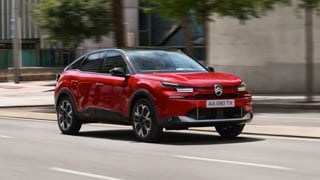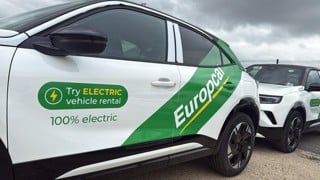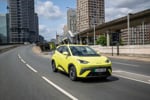New mayors for the West Midlands, Liverpool City Region, Greater Manchester and the West of England (so-called metro mayors) all back the introduction of clean air zones (CAZs) in their respective regions.
A CAZ framework set out by the previous Government suggests Euro 4 petrol, Euro 6 diesel or Euro VI for large commercial vehicles as minimum standards.
While the framework does encourage cities and towns to go further than the minimum standards and says that they will be updated “periodically”, the Department for Environment, Food and Rural Affairs (Defra) says it won’t change its minimum standards before 2025 in order to give businesses a level of certainty.
The new mayors were appointed in May and have devolved powers and a budget of millions to introduce their own strategies for tackling air quality and the rise in urban transport.
Clean Air Zones
Looking at the cities under the mayors’ control, Birmingham, like London, has already been ordered to implement a CAZ before the end of 2020, while both Manchester and Bristol are actively pursuing zones of their own.
Liverpool has not ruled out introducing a CAZ and is currently researching hot spot areas for air pollution and how it is going to address them.
Liverpool City Region mayor Steve Rotheram wants the area to be “zero-carbon by 2040”.
Of the six combined authority areas who voted in May, only Cambridgeshire and Peterborough is not considering introducing a CAZ.
Tees Valley failed to comment and the combined authority’s transport plan makes no mention of CAZs, diesel or truck bans, congestion charges or electric vehicles (EVs).
Defra has set out its “best available” emissions forecast for UK local authorities, which have one or more roads with concentrations of nitrogen dioxide (NO2) above statutory limits (40 micrograms per cubic metre), and for how long they would be above the threshold if no additional measures were taken.
The Government’s figures for the largest urban areas in each region show Manchester, Birmingham, Middlesbrough, Liverpool and Bristol all have illegal levels of NO2 until at least 2020.
Peterborough has the lowest level of pollution and will be below the 40mg limit as quickly as next year.
Cambridge was not included in the figures.
While the finer details are still to be determined, Andy Burnham, Greater Manchester mayor, says he will focus on high-polluting vehicles, like older HGVs, if he can introduce a CAZ.
Burnham told Fleet News: “We need to have the ability to introduce a CAZ so we can protect those most vulnerable from the high-polluting vehicles. But we also need a broader plan to reduce congestion, increase cycling and make public transport a clean, reliable and affordable alternative to the car.”
West Midlands mayor Andy Street is planning to implement a CAZ for commercial vehicles, but is also considering including cars in the scheme.
Street supports a taxation scheme on the most polluting vehicles, but also wants a “carrot” in the form of a scrappage scheme to encourage people to change.
A spokesman for Street said: “There are areas still to be discussed but it will form part of the work of the portfolio holder.” Street is expected to agree an action plan on issues with regards to transport within his first 100 days of office.
Meanwhile, a CAZ is being developed for Bristol, with West of England Mayor, Tim Bowles, supporting the scheme and wanting to provide new strategic roads to take goods vehicles away from towns and cities.
Congestion charges and vehicle bans
There are currently no plans to implement an outright ban on HGVs and diesel vehicles across the six combined authorities, or to introduce congestion charges.
While Transport for Greater Manchester (TfGM) is exploring the possibility of a £7.50 daily charge for zones in Manchester, Bolton and Bury, Burnham has said he doesn’t support the idea and does not want to “punish drivers of diesel vehicles”.
Street has also ruled out any “universal” congestion charge in Birmingham and wants to create an incentive scheme rather than a ban for HGVs to encourage them to use the M6 Toll road at peak times, relieving congestion on the M6.
Rotheram confirmed there are currently no plans for a congestion charge in the Liverpool City Region. He also said there is mixed evidence as to whether a diesel scrappage scheme would have the required impact to improve air quality.
Rotheram said: “We know transport is the main cause of our air pollution challenge, but some of the causes may not be the obvious ones.
“For example, cruise liners’ idling engines are a contributory factor in central Liverpool, not just road transport.”
James Palmer, Cambridgeshire and Peterborough mayor, doesn’t support a congestion charge currently until the option to choose public transport as an alternative is more viable. While Palmer supports the intention to introduce a targeted scrappage scheme for diesel vehicles, he said he does not foresee something specific for the Cambridgeshire and Peterborough area.
Electric and autonomous fleet
Specifics on EV plans were lacking in all of the new mayor’s manifestos, although there appears to be backing for the technology.
Street has pledged to support the development of electric and autonomous vehicles in the West Midlands by allowing companies to test vehicles there and said he will bid to improve infrastructure.
Burnham’s manifesto gives no mention of EVs, while Rotheram said he will work with the private sector and local authorities to deliver more charging points across the Liverpool City Region. He also confirmed free parking for EVs is not envisaged as a way of increasing adoption.
Part of Rotheram’s electric fleet plan focuses on re-regulating buses and he has pledged to only buy clean electric or hydrogen buses from 2020.
Both Burnham and Street have said they also want to re-regulate the buses in their respective areas.
Palmer would not commit to an electric bus fleet in the Cambridgeshire and Peterborough area. However, he said: “New roads will include charging points for electric vehicles.”
Tim Bowles, West of England mayor, said he supports incentivising EVs further than they are currently but hasn’t said how.
He is also supportive of autonomous vehicle technology. A three-year autonomous vehicle trial is already underway in the Bristol area as part of three projects by Innovate UK.
Coventry in the West Midlands also has its autonomous vehicle trials running as part of the UK Autodrive project.






















Login to comment
Comments
No comments have been made yet.